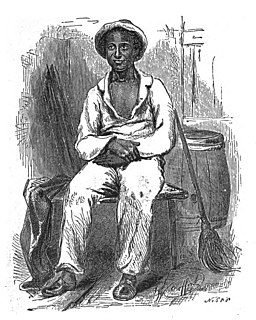A Quote by Fitz Hugh Ludlow
Porter Rockwell was that most terrible instrument that can be handled by fanaticism; a powerful physical nature welded to a mind of very narrow perceptions, intense convictions, and changeless tenacity. In his build he was a gladiator; in his humor a Yankee lumberman; in his memory a Bourbon; in his vengeance an Indian. A strange mixture, only to be found on the American continent
Related Quotes
Greatness by nature includes a power, but not a will to power. ... The great man, whether we comprehend him in the most intense activity of his work or in the restful equipoise of his forces , is powerful, involuntarily and composedly powerful, but he is not avid for power. What he is avid for is the realization of what he has in mind , the incarnation of the spirit .
When Heaven is about to confer a great office on a man, it first exercises his mind with suffering, and his sinews and bones with toil ; it exposes his body to hunger, and subjects him to extreme poverty ; it confounds his undertakings. By all these methods it stimulates his mind, hardens his nature, and supplies his incompetencies.
He, who is gone, was one of the very kindest friends I possessed, and yet he was not kinder perhaps to me, than to others. His intense mind and powerful feelings would, I truly believe, have done the world some service, had his life been spared but he was of too sensitive a nature and thus he was destroyed!
The power of magic has no known limits. A person knows, in a fair way, his own physical capacities, the weight of the blows he can deal, the furthest range of his arrows, the strength of his voice, the speed and endurance of his running; but the reaches of his mind are indefinite and, to his feeling, infinite.
The fact that labour is external to the worker, i.e., it does not belong to his intrinsic nature; that in his work, therefore he does not affirm himself but denies himself, does not feel content but unhappy, does not develop freely his physical and mental energy but mortifies his body and his mind. The worker therefore only feels himself outside his work, and in his work feels outside himself.
They are deceived who flatter themselves that the ignorant and debased slave has no conception of the magnitude of his wrongs. They are deceived who imagine that he arises from his knees with back lacerated and bleeding, cherishing only a spirit of meekness and forgiveness. A day may come - it will, if his prayer is heard. A terrible day of vengeance when the master in his turn will cry in vain for mercy.
He[Napoleon] had destroyed only one thing: the Jacobin Revolution, the dream of equality, liberty and fraternity, and of the people rising in its majesty to shake off oppression. It was a more powerful myth than his, for after his fall it was this, and not his memory, which inspired the revolutions of the nineteenth century, even in his own country.
Strange is the vigour in a brave man's soul. The strength of his spirit and his irresistible power, the greatness of his heart and the height of his condition, his mighty confidence and contempt of danger, his true security and repose in himself, his liberty to dare and do what he pleaseth, his alacrity in the midst of fears, his invincible temper, are advantages which make him master of fortune.



































